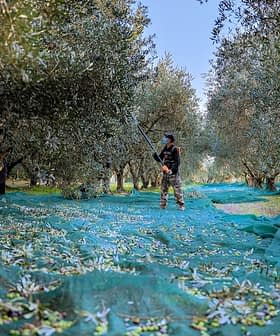 6K reads
6K readsBasics
Extra virgin olive oil (EVOO, for short) should be an essential ingredient in every cook’s kitchen.
Whether baking, sauteéing, grilling, dressing or making soups and stews, adding EVOO to the mix enhances the flavor of the food and endows it with health benefits the vast majority of other cooking oils simply can’t provide.
See Also:Olive Oil BasicsBelow, we’ve detailed a few of the ways in which to best use extra virgin olive oil in your cooking repertoire and how you can find the best olive oils for cooking.
Is cooking with extra virgin olive oil safe?
The short answer to this is, yes, of course. The reason it needs to be addressed right away is because there is plenty of misinformation about the smoke point of olive oil. The all-too-common misconception is that the smoke point is too low for everyday uses.
However, researchers have shown that extra virgin olive oil can be heated for short periods of time at temperatures as high as 240 ºC (475 ºF) and can remain at temperatures as high as 180 ºC (355 ºF) for up to six hours without denaturing.
See Also:Cooking with Olive OilBoth of these measures demonstrate that EVOO can be safely used for the vast majority of domestic cooking needs.
Further research has also demonstrated that many of EVOO’s healthful properties, including polyphenols and antioxidants, remain intact, even after being heated.
Now that this has been cleared up, it is time to get into the kitchen and get cooking.
Baking with extra virgin olive oil
People have been baking with extra virgin olive oil for generations. Swapping out traditional animal fats for EVOO is a great way to make your baked goods slightly more healthy while adding an extra layer of flavor.
Making the change will add antioxidants and vitamin E to your breads, muffins, cakes and crumpets. It will also cut down on saturated fats.
Generally speaking, you want to use a delicate EVOO for baking to accentuate the flavor without overpowering it. Don’t use an EVOO you wouldn’t want to dip bread in.
See Also:Spanish Baker Launches Olive Oil-Based Pastry RangeIf you are an EVOO fanatic, however, a robust oil can give that baked creation a green fruity flavor. While it may not be everyone’s cup of tea, it is certainly worth trying in a small batch of cake or brownies at least once.
However, there are a few instances in which it is not wise to substitute EVOO for butter. A recipe that calls for liquid butter or creaming butter is counting on them for texture. Adding EVOO will change this.
Any other time these fats are mentioned, however, try swapping them out for extra virgin olive oil: Three tablespoons of EVOO for a quarter-cup of butter.
Sauteéing and frying with EVOO
As long as you are not deep frying (plan on using refined oils for this), extra virgin olive oil is perfect to fry and sauteé a range of dishes.
Delicate extra virgin olive oils have the lightest flavors and are best for sautéing. Their mild taste will complement the flavor of the dish without overpowering it.
See Also:Dispelling the Myths of Frying With Olive OilWhen sautéing with extra virgin olive oil, it is best to use a small frying pan. This allows you to pool more EVOO at the bottom without having to use a significant portion of the bottle. Using a larger pan will mean you need to use more EVOO to get the same desired end result.
Grilling with extra virgin olive oil
Just like sauteéing and frying, extra virgin olive oil is excellent for grilling as well. Not only does using EVOO add additional layers of flavor to whatever you are grilling, it may also make grilling safer and healthier.
According to American Institute for Cancer Research, grilling at high temperatures may release cancer-causing chemicals, known as heterocyclic amines (HCAs).
See Also:Pairing Extra Virgin Olive Oils with Fish and Meat DishesHowever, marinating the meat in extra virgin olive oil creates a barrier between the meat and heat, helping to prevent the formation of HCAs. The numerous phenolic compounds in EVOO also help sequester some of these chemicals.
Away from the healthful reasons to do so, there are also flavorful reasons to grill with extra virgin olive oil.
Just be sure to pour the EVOO and rub it in to cover the meat or veggie is covered as possible before placing on the grill.
Using EVOO for soups, stews and dressing
While EVOO is perfectly suited for all kinds of cooking, it is best known as a finishing oil.
Any EVOO – from delicate to robust – can be drizzled over salads and just about everything else.
See Also:Olive Brine, a Secret Kitchen IngredientGenerally speaking, the type of oil you want to add to the salad depends on the vegetables. Delicate oils are best for mild flavors, such as baby lettuce, while robust oils are perfect for stronger flavors, such as kale. Add medium oils to something like a Caesar salad for a nice flavor kick.
Robust olive oils are nice for adding some additional flavor to soups, stews and red sauces.
Where can I find the best extra virgin olive oils for cooking?
The retail finder on the Official Guide to the World’s Best Olive Oils makes it easy to find award-winning extra virgin olive oils near you or through online retailers.









